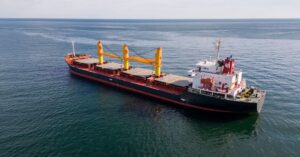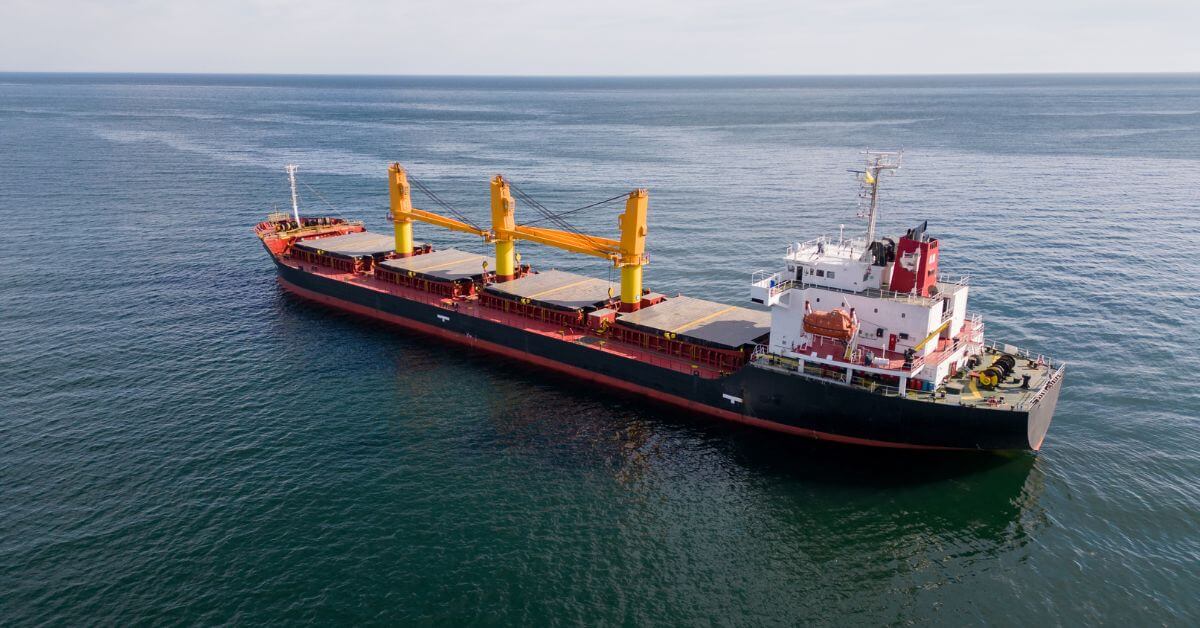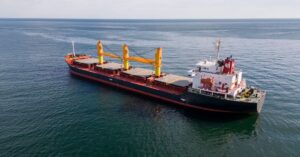
Libyan Militias Carried Out 60 Violent Attacks At Sea Since 2016, New Report Reveals
October 15, 2025
Chinese Freighter Reaches UK In 20 Days Via Arctic Route, Cutting Delivery Time By Half
October 15, 2025

Swedish authorities have officially closed their investigation into the suspected sabotage of a Baltic Sea communications cable between Sweden and Latvia, concluding that the incident was accidental and caused by severe weather, technical failures, and inadequate seamanship aboard the vessel involved.
The preliminary investigation began after damage was discovered on 26 January 2025 in the submarine fibre-optic cable linking Gotland in Sweden with Ventspils in Latvia.
The Malta-flagged dry bulk carrier Vezhen, owned by Bulgaria’s Navigation Maritime Bulgare, was detained by Swedish authorities on suspicion of causing the damage but was later released on 3 February after prosecutors found no evidence of deliberate sabotage.
According to the Swedish Prosecution Authority, the findings showed that the cable break was the result of a combination of harsh weather, mechanical defects, and operational shortcomings rather than any intentional act.
Senior Prosecutor Mats Ljungqvist of the National Security Unit stated that the incident was determined to be an accident following a thorough investigation.
The investigation was carried out in coordination with the Swedish Security Service (Säkerhetspolisen), the Police Authority (Polismyndigheten), the Coast Guard, and the Armed Forces.
Authorities conducted a detailed technical examination, analysed the ship’s voyage data recorder (black box), and reviewed onboard video recordings. Several witness interviews were also conducted to piece together the events surrounding the damage.
Findings from the investigation revealed that Vezhen’s anchor system was not fully functional at the time of the incident. A ship’s anchor is typically secured by three independent safety mechanisms, but two of them had been non-operational for some time. The only functioning device, known as the “Björnlås,” reportedly failed after being struck by a powerful wave at 04:11 on 25 January.
When the device broke, the anchor and its chain were released, causing the vessel to lose speed and rotate. The autopilot, which was active, automatically compensated for this movement, and no alarm alerted the crew. The next day, the ship’s dragging anchor struck and severed the undersea fibre-optic cable off Gotland, within Sweden’s exclusive economic zone.
The Swedish prosecutor’s office stated that the incident occurred amid heavy storms in the Baltic Sea and concluded that the cable was not damaged intentionally. As such, the office confirmed that Sweden had no jurisdiction to pursue any negligence-related offences.
Prosecutors in February ruled out sabotage, and the vessel was released. The investigation’s findings were handed over to Latvian authorities in the spring of 2025, who are continuing their own investigation.
The damage had earlier led to speculation that it might be linked to hybrid warfare by Russia, but Swedish investigators found no evidence of deliberate interference or foreign involvement.
References: sverigesradio, AFP
Source: Maritime Shipping News


